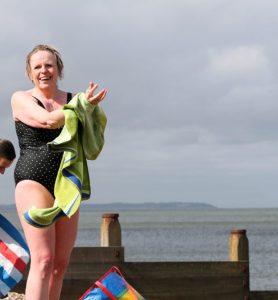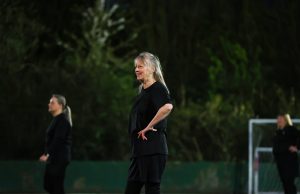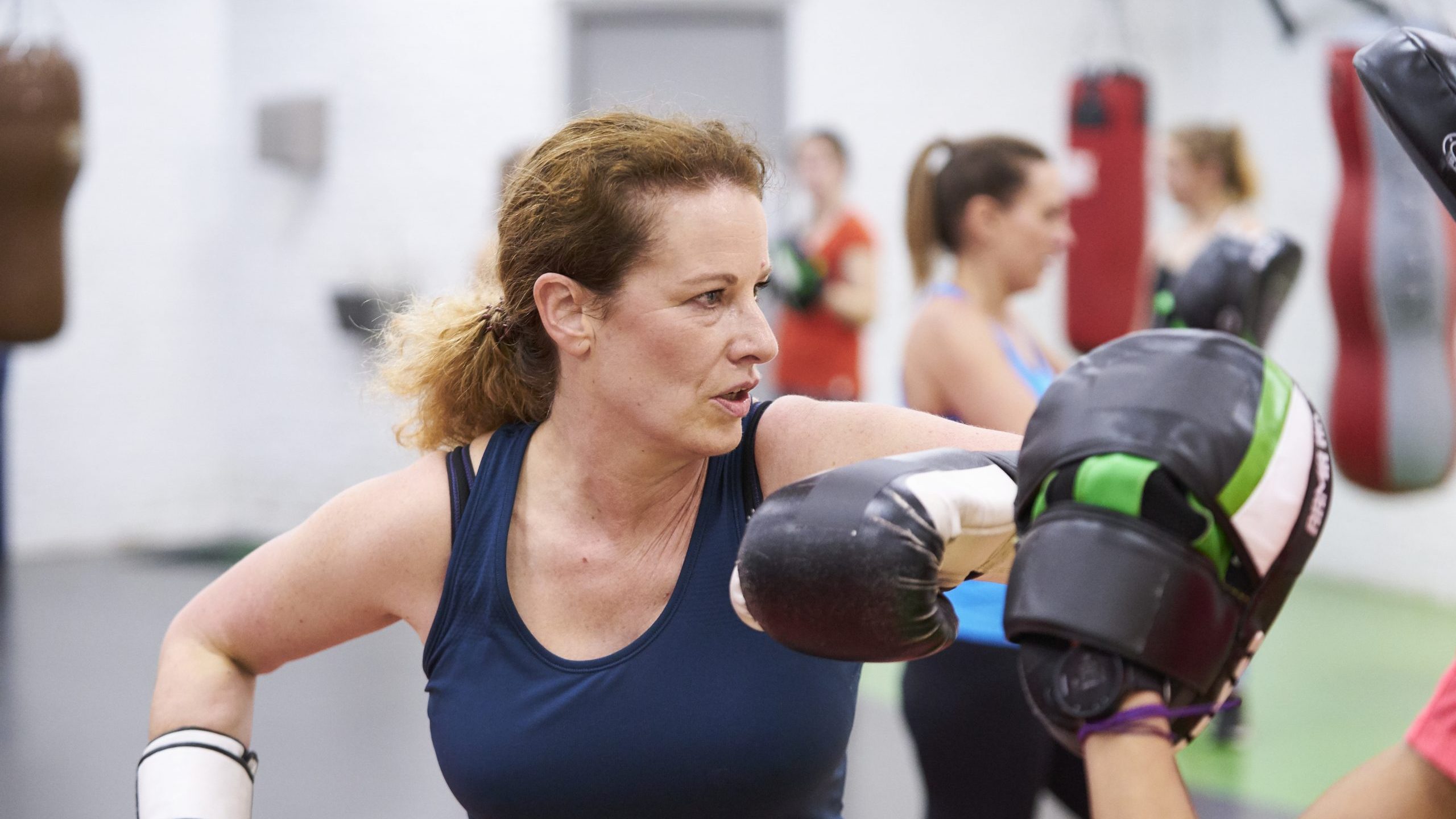We recently spoke to individuals from across sport, media and medicine about menopause and perimenopause. We asked them to reflect on their own experiences as well as research and one thing many told us was: we need to change the conversation around menopause.
So, we’re aiming to do just that. Thanks to funding generated by players of People’s Postcode Lottery through the Postcode Sport Trust, we’re continuing our work supporting women going through menopause; as well as conducting research, we will be campaigning to help women feel empowered at this stage of life.

Every woman’s experience of menopause is different, but for women in the UK, it usually starts between the ages of 45 and 55, with the average age being 51. In the months and years before menopause occurs, women’s oestrogen levels have already started to decrease, a period known as perimenopause.
Eighty percent of women will experience symptoms, including well-known physical symptoms such as hot flushes and night sweats, but might also have psychological symptoms such as low mood/anxiety and problems with memory. On average, women experience symptoms for four years, but some women will have symptoms for 12 years or longer. Because of changing hormone levels, women are also more at risk of osteoporosis and cardiovascular disease during and after menopause. This period can therefore have a big impact on women’s quality of life.
In the media, the conversation around menopause is often one of sadness, loss and all about aesthetics. Column inches are dedicated to diets, losing weight or looking younger. Rarely are women encouraged to embrace this new stage of life or feel empowered.
But there is also an opportunity and a feeling of new beginnings for some women. In our Menopause, Me and Physical Activity research, women told us that menopause presented a moment to reappraise their lives. They had a desire to focus more on themselves and take back control of their lives. The active women we interviewed in our research said that exercise played a role in managing their symptoms and therefore giving them a sense of control.
Lorraine Candy, the former Editor-in-Chief of The Sunday Times Style magazine, believes that women can start to redefine menopause, but it requires everyone to start talking. “I think we have to start changing the conversation ourselves around it. That conversation should be brought into the workplace, into schools, we should talk to our teenage daughters about it. We haven’t really talked to our mothers about it because it’s been a taboo, whereas I think our daughters will talk to us about it.”
We need to create open and safe environments to talk about the realities of menopause — the good, the bad and the ugly — with friends, journalists and medical professionals. We’re only now seeing the outcome of years of work to end the taboo around periods, and menopause should similarly be an everyday dinner table topic. The stigma around mental health is slowly being eroded, but the depression and mental health struggles that women face during menopause are still largely undiscussed.
Sparking conversations also helps raise awareness and prepares women for what’s ahead. “I somehow want to get in front of younger women, not to terrify them about what is coming but to raise awareness of how useful understanding your body and tracking your cycle is because then you know when things change,” says Emily Barclay, a personal trainer for women and founder of Peri-menopause Hub.
Louise Minchin, a BBC News presenter, said talking about menopause on the news led to support and understanding for viewers at home: “Men and women both said to me, this explains so much to me about this person I love or the way that I’m feeling. We just went on this extraordinary journey first of all by breaking the taboo by someone talking about it on TV and then exploring all sorts of stuff.
“Women were able to say things to their partners that they hadn’t been able to say. I had lots of men getting in touch saying, ‘I didn’t realise’…this is all okay because it’s all perfectly normal.”
It’s also important that we include all women in these conversations and make sure women from different backgrounds feel represented and heard.

Dr Nighat Arif, a GP and Women’s Health Specialist, has been engaging South Asian women on menopause through media appearances and wider engagement work. She’s been able to start conversations in the South Asian community and helped women feel like they can open up about their experiences. She believes that more needs to be done to ensure that doctors are aware of “cultural nuances” so that they can support women going through menopause, “we’ve got to train our doctors in these cultural nuances, we’ve got to train our communities how to look for things themselves and what they can do to get themselves better, how they can utilise the finite resources the health service has.
“I try and do as much as I can. I do a lot of talks to training GPs in their registrar years, not just on menopause but in a range of women’s health issues, I do podcasts and I’m active on social media where I try and bring the ethnic minority voice in.”
Candy, who has been vocal about menopause in her podcast Postcards from Midlife, says the media needs to play its part. “Large chunks of the media are edited with a very male dominated view of women at this stage of life. If you google women menopause images you get a really negative, non-representative picture.”
It’s also vital that we show women getting active. Research suggests that women are missing out on activity as they get older, with 39% of women aged 45-54 not meeting CMO guidelines (Sport England, Active Lives 18/19). In our research, 30% of women said they were ‘less active’ during menopause. Being active can help sustain and improve women’s physical and mental health during menopause and beyond, and we’re committed to making it part of women’s lives.
Over the next year we will be working to change the conversation on menopause, telling the stories of women who have faced barriers to being active and launching alongside this some new in-depth research to recommend how we can work together to change the deep rooted stereotypes. Through our campaigning and programme development we will transform the way women are supported during this life stage and ensure they can lead healthy and happy lives.



